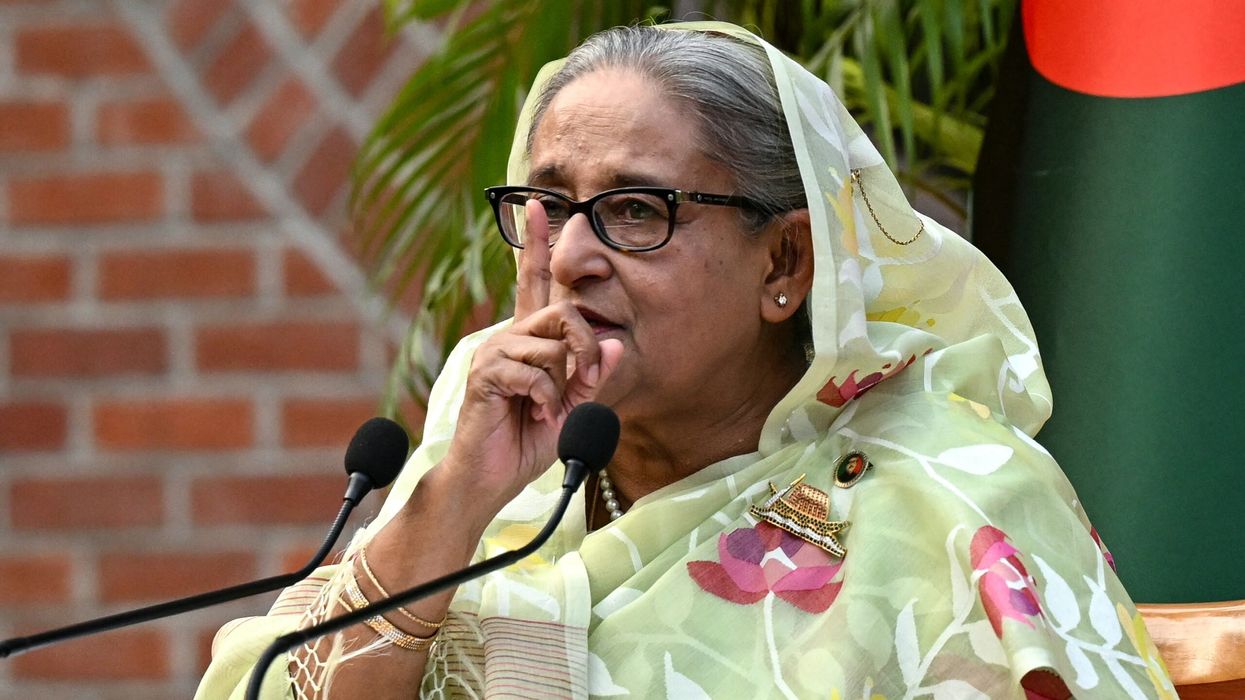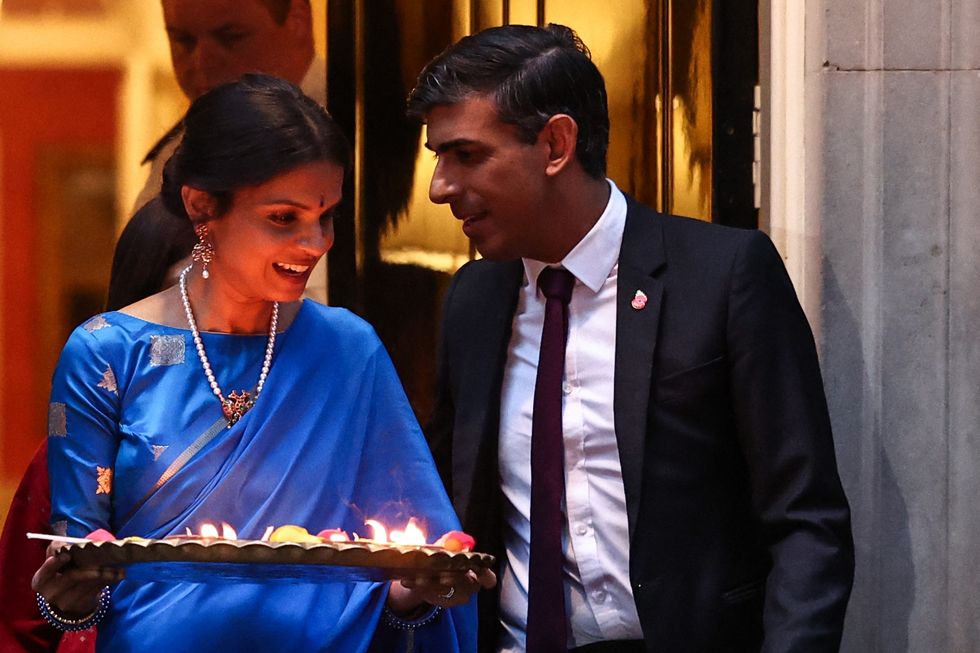Prince Harry has come a long way in educating himself about race since his youthful days, when he used an offensive slur against a fellow army cadet from Pakistan and dressed up as a Nazi soldier at a party.
In an explosive interview with Oprah Winfrey, the Queen's grandson explained that his mixed-race wife Meghan had helped him on his journey of awareness, and he wanted his family, the media and Britain at large to educate themselves too.
"I've spent many years doing the work and doing my own learning," the 36-year-old said, noting his privileged background meant "I wasn't aware of" racial issues on the whole.
"But my God, it doesn't take very long to suddenly become aware of it," Harry said, reflecting years on from his early 20s, when the details emerged of the fancy-dress party and his calling the fellow cadet a "Paki".
The interview has certainly sparked new debate about race in Britain, but there is little common ground between white commentators and black voices following Harry's assertion that racism was a "large part" of the reason why he and Meghan quit the UK for North America.
"America has a long and profoundly tragic history when it comes to racism. But they acknowledge it and they know it," Lola Adesioye, a British commentator on race based in New York, told AFP.
"I still feel that the UK has a sort of delusion about its racial standing, and the idea that racism is not a really a thing in the UK, 'that's an American problem', and that the UK is much more integrated," she said.
"So when you hear someone like Meghan Markle who's clearly a modern woman talking about some of the racial issues that she confronted in the royal family... people asking about what colour will your son be, is something that is very hard for people in America to get their heads around."
- TV tantrum -
Buckingham Palace said the queen took the claims of racism "very seriously" and they would be addressed by the family privately, even if "some recollections may vary".
Historian David Olusoga, author of the book Black and British: A Forgotten History, said the allegations should force a reckoning for both the royal family and the UK.
"Yet rather than use this moment to embark upon an honest national conversation about race and racism there will, I fear, be further demonisation of Meghan and Harry," he wrote in The Guardian on Tuesday.
"Trapped in denial -- about everyday racism, structural racism, slavery and empire -- there are parts of British society that appear incapable not just of change but even of its necessary precursor: honest self-reflection."
Journalist Piers Morgan -- one figurehead of the anti-Meghan, "anti-woke" camp -- stormed out of his own TV studio Tuesday as a black presenter dissected the racial tinge to UK press coverage of Meghan before and after her 2018 wedding to Harry.
Morgan returned later for a painful interview with Meghan's estranged father Thomas Markle, who said the couple's claims that an unidentified royal wanted to know the likely skin tone of their unborn son were "bullshit".
There is deep divide between those who believe Meghan's remarks on race and self-harm, and others who view her as a publicity-seeking Hollywood export who by her own admission failed to learn anything about her future role before the wedding.
The debate is all the fiercer coming after nearly a year of Black Lives Matter protests sparked by the death of George Floyd as he was held by US police.
Prime minister Boris Johnson is refusing to get involved, other than to laud the queen's "unifying role" for Britain and the 54-nation Commonwealth she heads, most of whose 2.4 billion people are not white.
But his government set out its stall in new policing legislation introduced Tuesday that would raise the maximum penalty for criminal damage of a memorial from three months to 10 years.
That followed the government's stated intention to prosecute BLM protesters in Britain who last year toppled a statue of a 17th century slave merchant and defaced another of Winston Churchill.
Politicians from Johnson's ruling Conservative party have also railed against organisations such as the BBC and National Trust, which manages more than 500 stately homes, for seeking to educate the public more about Britain's colonial and slaving past.
- Press 'not racist' -
Those supporting Meghan can produce many examples of double standards, including side-by-side comparisons of newspaper headlines on coverage of Meghan and her white sister-in-law Kate.
One notorious jibe came in 2016, soon after the couple started dating. "Harry's girl is (almost) straight outta Compton," the Daily Mail wrote of the Los Angeles native, describing her upbringing close to a district known for its gang violence.
Prince Harry told Winfrey that the UK press, especially tabloid newspapers, were "bigoted".
That sparked an angry denial from the Society of Editors, a guild of senior British newspaper journalists, some of whose members have faced lawsuits from the royal couple.
The UK media has a responsibility to hold people to account, it said. "If sometimes the questions asked are awkward and embarrassing, then so be it, but the press is most certainly not racist."
That prompted bafflement on social media from many journalists, noting the bigotry they themselves had witnessed in newsrooms and the lack of racial diversity in UK media as a whole.
Marcus Ryder, a professor in media diversity at Birmingham City University, said the editors' claim was "utterly bizarre".
"To say the press is not racist is like saying society is not racist," he told AFP, adding: "The idea that race doesn’t play a part in (Meghan's) coverage is naive."

















 Rishi Sunak and Akshata Murty. (Photo by HENRY NICHOLLS/AFP via Getty Images)
Rishi Sunak and Akshata Murty. (Photo by HENRY NICHOLLS/AFP via Getty Images) 

